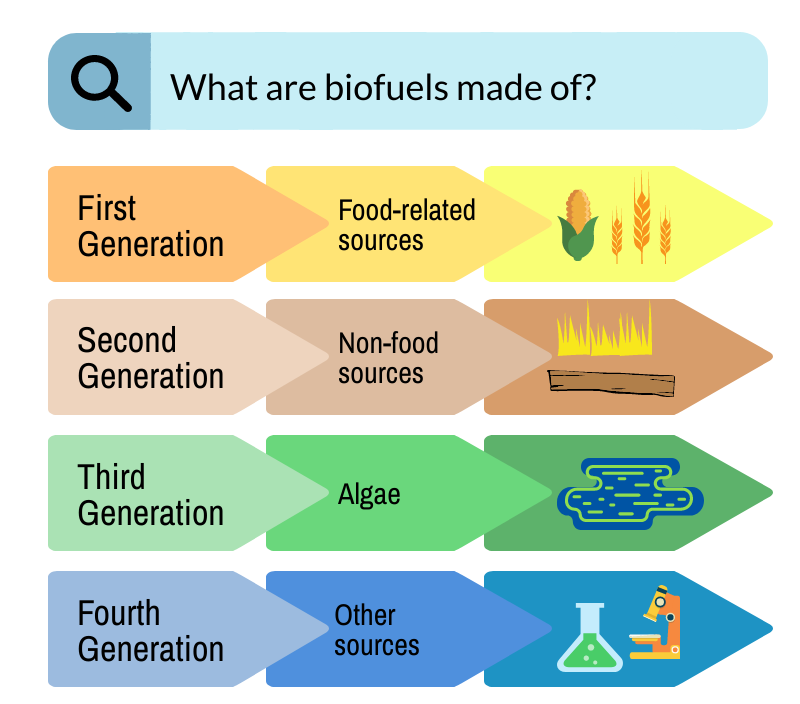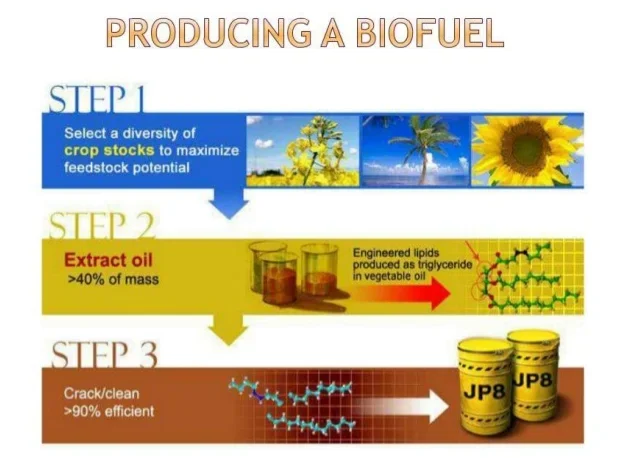
Paving the Way to a Sustainable Future
Introduction
Biofuels have emerged as a promising solution to the challenges of energy security and environmental degradation. As the world grapples with the urgent need to transition to renewable energy sources, biofuels have gained attention due to their potential to reduce greenhouse gas emissions and dependence on fossil fuels. In this article, we will delve into the history, significance, and future prospects of biofuels.
Historical Background
The Evolution of Biofuels
Biofuels can be traced back to ancient civilizations, where vegetable oils were used for lighting lamps. However, it was not until the 19th century that biofuels started to gain traction as an alternative to traditional energy sources. The industrial revolution saw the rise of biofuel industries, particularly in Europe and North America, as an increasing demand for energy necessitated new sources of fuel.
Key Concepts and Definitions
Understanding Biofuels
Biofuels encompass a wide range of renewable fuels derived from organic matter, such as plants and agricultural waste. The two most common types of biofuels are biodiesel and bioethanol. Biodiesel is produced from vegetable oils or animal fats, while bioethanol is made through the fermentation and distillation of crops like corn and sugarcane.

Main Discussion Points
Early Use of Biofuels
One of the earliest historical uses of biofuels was in lamps, where vegetable oils were burned to produce light. Additionally, biofuels played a crucial role in the transportation sector, with vegetable oil-based fuels powering the first diesel engine developed by Rudolf Diesel in the late 19th century.
Industrialization and Modern Biofuels
The industrial revolution marked a turning point in the development of biofuels. As industries expanded, the demand for energy soared, leading to the establishment of biofuel production facilities. In the modern era, advancements in biofuel technology, such as the introduction of enzymatic processes and the use of microorganisms, have further propelled the industry forward.
Government Support and Policies
Government support and policies have played a vital role in promoting biofuels. Subsidies and regulations have incentivized the production and utilization of biofuels, leading to increased investment and research in the field. However, the impact of policies on the biofuel industry is a subject of ongoing debate, with critics questioning the efficacy and potential unintended consequences of government interventions.

Case Studies or Examples
Success Stories in Biofuel Initiatives
Several countries and regions have successfully implemented biofuel projects and initiatives. Brazil, for instance, has become a global leader in bioethanol production, utilizing its abundant sugarcane resources. The United States has also made significant strides in biofuel production, with corn-based ethanol accounting for a substantial portion of the country’s fuel supply.
Current Trends or Developments
Advancements Shaping the Future of Biofuels
Recent advancements in biofuel technology have opened up new possibilities for its widespread adoption. Innovations such as algae-based biofuels and cellulosic ethanol hold promise for increased efficiency and reduced environmental impact. Moreover, the aviation and shipping industries are increasingly turning to biofuels to mitigate their carbon footprint.
Challenges or Controversies
Navigating the Roadblocks
The use of food crops for biofuel production has sparked a heated debate. Critics argue that diverting agricultural resources to fuel production exacerbates food insecurity and raises concerns about deforestation. Furthermore, the environmental impacts of biofuel production, such as land degradation and water pollution, require careful consideration. The biofuel industry also faces technological and economic challenges in scaling up production and making it economically viable.

Future Outlook
Towards a Sustainable Biofuel Revolution
Looking ahead, the future of biofuel development is poised for exciting possibilities. With increasing global awareness of climate change and renewable energy goals, biofuels are expected to play a pivotal role in achieving a sustainable energy transition. The industry can anticipate further innovations and advancements in technology, as well as an evolving regulatory landscape shaped by climate policies and market forces.
Conclusion
A Promising Path Forward
In conclusion, understanding the history of biofuels is crucial for grasping the significance of this renewable energy source. From its humble beginnings as lamp fuel to its modern-day applications, biofuels have come a long way. As we face the pressing challenges of climate change and energy sustainability, biofuels offer a viable solution that warrants further research, investment, and exploration.
References
Smith, R. (2018). Biofuels: A Brief History. Retrieved from [insert link]
National Renewable Energy Laboratory. (2021). Biofuels Basics. Retrieved from [insert link]
United Nations Environment Programme. (2019). Sustainable Bioenergy: A Framework for Decision Makers. Retrieved from [insert link]




